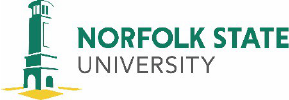
BOV POLICY # 35 (2019) INTELLECTUAL PROPERTY POLICY
Page 1 of 15
Policy Title: Intellectual Property Policy
Policy Type: Board of Visitors
Policy Number: BOV Policy #35
Approval Date: March 19, 2021
Responsible Office: Dean of the School of Graduate Studies and Research
Responsible Executive: Provost and Vice President for Academic Affairs
Applies to: All University employees, students and affiliate entities.
POLICY STATEMENT
Norfolk State University (NSU) encourages and supports the intellectual pursuits, creative
activities, and inventions of its faculty, employees and students. The results of these endeavors
may be the subject of patent application(s), copyright(s), or other tangible material that is
commonly referred to as “Intellectual Property.” As a state university of the Commonwealth of
Virginia, NSU is required by the State to have an “Intellectual Property Policy” that covers these
products.
The University shall retain all rights, title, and interest in any, and all, Intellectual Property
generated, created, or developed in facilities operated or controlled by the University, supported
by funds administered by the University, and/or performed in the course of regular duties by
University members while utilizing University resources. The University retains the non-
exclusive, royalty-free right to use, for non-commercial purposes, works produced by its
employees and/or Affiliates while acting within the scope of employment unless exempted by
other provisions of this policy.
Use of the University’s name in connection with the commercialization of a faculty, staff or student
work must be approved in advance by the University, through the School of Graduate Studies and
Research.
TABLE OF CONTENTS PAGE NUMBER
Definitions ...................................................................................................... 3
Contacts .......................................................................................................... 4
Stakeholders(s) ............................................................................................... 4
Intellectual Property Policy: Policy Contents ................................................ 4

BOV POLICY # 35 (2019) INTELLECTUAL PROPERTY POLICY
Page 2 of 15
Education and Compliance ............................................................................ 11
Publication .....................................................................................................11
Review Schedule ...........................................................................................11
Related Documents ........................................................................................12
Forms .............................................................................................................12
DEFINITIONS
Affiliate Entity or Affiliate: Visiting faculty, full-and part-time agents and employees, full- and
part-time students (both undergraduate and graduate), interns and residents, and fellows (pre- and
post-doctoral), whether or not they receive all or any part of their salary or other compensation
from the University.
Assigned Duty: Intellectual Property created by an Affiliate where the University has specifically
directed the Affiliate to develop/produce the Intellectual Property.
Copyrighted Work: An original work of authorship fixed in any tangible medium of expression,
including but not limited to literary, musical, dramatic and pictorial materials, sound and visual
recordings, computer software programs, creative arts, documents, and transcripts, published or
unpublished, which property rights are protected by common law and federal copyright law, as
further defined by Title 17 of the U.S. Code. Copyright protection does not protect ideas, concepts,
systems or methods of doing something. (https://www.copyright.gov/help/faq/faq-protect.html)
Disclosure Document: A report of a development, invention or creation of Intellectual Property.
Invention: Inventions shall include all new, useful and non-obvious discovery, machine, process,
composition of matter, article of manufacture, design, model, or technological development,
including without limitation all circuits, computer hardware and software, communications
protocols, antennas, chemical or polymeric compounds, ceramic, mixed or purified metal, catalyst,
cure, biological organism, whether or not genetically engineered, including, microbes, cell lines,
cultures, clones, biological or plant material, strain, variety, etc., and modifications, improvements,
or extensions thereof.
Intellectual Property (IP): Intellectual Property shall include, without limitation, any Invention
(whether patentable or not); certain Copyrightable subject matter; Trademarks; engineered
materials (ceramic, metal, polymer or hybrids thereof); genetically engineered crops, animals,
bacteria, fungi, or other members of the plant or animal kingdoms; crops or animals made during
a breeding program; bacteria, viruses, and other microbes identified or isolated from any source;
samples of biological materials; microchip masks and data sets defining such masks; three
dimensional printing processes and/or data sets or information for the same; and any other

BOV POLICY # 35 (2019) INTELLECTUAL PROPERTY POLICY
Page 3 of 15
information, data or materials produced by NSU faculty and Affiliates during their association
with NSU and/or through the Use of Substantial University Resources. Within this Intellectual
Property Policy, Intellectual Property may be more simply referred to as “technology”.
IP Pool: The IP Pool is a budget designated for covering any development expenses incurred by
the University for goods and services to administer, protect, develop, and/or enhance the
marketability or other aspect of an Intellectual Property, including, but not limited to, patent
expenses, protection or litigation of Intellectual Property rights, marketing expenses, consulting
fees, and expenses incurred in dealing with equity interests. The Dean of SGSR retains a
percentage of all revenues from commercialization to subsidize IP expenses per the Distribution
Table referenced in this policy.
Net Revenue: Gross revenue less all incurred or accrued development expenses and holdbacks
for any known contingent liabilities.
Originator: In the context of an invention, those in the creative group which gave rise to the new
product, concept, or idea. In the context of software or other copyrightable subject matter in which
NSU has an ownership interest, those which created portions of the work. In the context of other
valuable Intellectual Property, those which are the sources of the Intellectual Property.
Patents: Patents include all domestic or foreign patent applications or patents issuing therefrom,
or reissues, re-examinations, continuations, divisionals, and extensions thereof.
Sponsored Research: Research performed under the support of, and compensated by, a
sponsoring agency.
University Research: University research is defined as research and related activities by any
person, which are related in any way to duties or responsibilities for which he/she has been
compensated either by or through the University; or for which facilities owned, operated, or
controlled by the University are used in a significant manner. University Research includes, but
is not limited to, Sponsored Research or research which involved a significant use of general funds
or which involved a Significant Use of University Resources.
Significant Use of University Resources: For the purpose of this policy, this means substantial
and dedicated support of the University, including Sponsored Research, or other grants received
by the University. Utilization of University laboratories or special instrumentation, dedicated
services provided by University employees, special financial assistance or extensive use of shared
facilities constitutes significant use. In contrast, the use of a computer in a faculty office, other
commonly used equipment for teaching and learning activities, use of incidental supplies, and
nominal use of University personnel or shared facilities are not considered significant use.

BOV POLICY # 35 (2019) INTELLECTUAL PROPERTY POLICY
Page 4 of 15
CONTACTS
The Dean of the School of Graduate Studies and Research officially interprets this policy. The
Dean of the School of Graduate Studies and Research is responsible for obtaining approval for
any revisions as required by BOV Policy # 01 (2014) Creating and Maintaining Policies through
the appropriate governance structures. Questions regarding this policy should be directed to the
Dean of the School of Graduate Studies and Research.
STAKEHOLDERS
All University employees, students and Affiliate entities.
INTELLECTUAL PROPERTY POLICY CONTENTS
The purpose of the Intellectual Property Policy is to:
1. Provide an incentive for creative intellectual effort and the advancement of knowledge
for the benefit of humanity;
2. Ensure that the rights, privileges and interest of the University, its employees, students,
and any supporting sponsor or other stakeholders, are recognized and protected through
the development of fair agreements and procedures;
3. Encourage employees, students and/or stakeholders of the University, to realize the
tangible benefits of Intellectual Property endeavors; and
4. Advance and encourage further research within the University, with revenues accruing
to the University from Intellectual Property endeavors and commercialization.
NSU is the owner of all Intellectual Property (as defined in the definition above) and, according to
this Intellectual Property Policy, all NSU faculty and Affiliates hereby assign all rights in the
Intellectual Property to NSU. Under this Intellectual Property Policy, NSU has an option to
commercially exploit all such Intellectual Property within its sole discretion. Should NSU exercise
its option to include the Intellectual Property as an asset to be commercialized by NSU according
to this Intellectual Property Policy, originators of the Intellectual Property will execute all
documents NSU deems necessary or desirable by NSU for seeking and/or securing and/or
recording its ownership rights in the Intellectual Property in US and foreign governmental
agencies, courts, and the like. Regardless of whether NSU exercises its option to include the
Intellectual Property as an asset to be commercialized, NSU shall retain a fully paid-up, non-
revocable, non-exclusive license to make and use the Intellectual Property for non-commercial,
research, instruction, and educational purposes.

BOV POLICY # 35 (2019) INTELLECTUAL PROPERTY POLICY
Page 5 of 15
Ownership
1. To the extent not proscribed by law or contract, the University shall own all Patents on
Inventions made by NSU faculty and Affiliates or made using Significant Use of
University Resources, and the NSU faculty and Affiliates hereby affirm the same.
2. To the extent that any other person may have an ownership right in Intellectual Property
which was developed with a Significant Use of University Resources or Sponsored
Research/resources and/or was developed wholly or significantly with general funds, that
person shall be required to transfer any such ownership interest to the University.
3. To the extent permitted by the Virginia Code, all applicable regulations, and State
Council on Higher Education for Virginia Guidelines, the University may enter into
contracts with sponsors of research in which the sponsor asserts an ownership interest.
If the University enters into such a contract or other funding vehicle, the terms of that
contract or other funding vehicle shall take precedence over this policy. If the sponsor
does not assert an ownership interest, the ownership vests with the University as provided
in this policy. As a non-profit institution, NSU retains a full claim on innovations made
with the help of federally funded research as stated in the Bayh-Dole Act (37 CFR
paragraph 401).
4. To the extent permitted by the Virginia Code, all applicable regulations, and State
Council on Higher Education for Virginia Guidelines, the University may enter into
partnership contracts with outside parties for research or other sponsored activities. If
the University enters into such a contract, the terms of that contract shall take precedence
over this policy.
5. Pursuant to Virginia Code Section 23.1-1301, and Title 17 and Title 35 of the United
States Codes the University may, upon the approval of the Board of Visitors, transfer its
interests in Intellectual Property to other persons or entities. Such transfers will meet all
applicable legal requirements. Refer to the Transfer of IP section within this policy for
additional requirements.
6. The school name and all trademarks used to promote the school, whether or not
registered, are important assets owned by NSU. Commercialization of any technology
or product by any NSU faculty or Affiliate, or any third-party licensee or optionee, may
not employ the school name or any of its trademarks without the prior written
authorization of NSU.
7. NSU does not take ownership in any Copyrightable Work created by NSU faculty or
Affiliates that is created using generally available University Resources when such works
are not made pursuant to an expressly Assigned Duty, and retains only a non-exclusive
right to use the Copyrightable Work for educational and non-commercial purposes in
such works. These works include novels; music, artwork; pictorial works; films and film

BOV POLICY # 35 (2019) INTELLECTUAL PROPERTY POLICY
Page 6 of 15
clips; instructional materials developed for student instruction; textbooks, papers, and
other publications; and software related to the author’s research or position at NSU.
NSU has ownership of copyrights in all software developed for performing a university
function including without limitation library related software, software involving
securing financial aid, software for addressing the needs of foreign students, software for
managing a building project, software for managing remote student testing and/or
coursework participation, etc. NSU has ownership of copyrights in all Copyrightable
Works wherein Significant Use of University Resources were expended including
without limitation software specifically requested to be developed by university
personnel using university resources; coursework (audio, audio visual, visual, textual)
specifically requested to be developed by university personnel using university resources
for distance learning, professional certifications, student instruction, etc.; and pictorial,
artistic, editorial, and audiovisual works requested to be developed by university
personnel using university resources (e.g., for NSU promotional material, for subjects of
interest for NSU, etc.). NSU’s ownership of certain Copyrightable Works set forth in
this paragraph begins at the creation of the Copyrightable Works, and NSU faculty and
Affiliates agree to immediately notify the Intellectual Property Committee of its creation,
and, should the Intellectual Property Committee deem it necessary or desirable, the
authors of the Copyrightable Works will execute any assignment documents NSU deems
suitable for recording NSU’s ownership interest at the U.S. Copyright Office or any
foreign counterpart office equivalent thereto.
If there is a dispute concerning ownership of a copyright, the Intellectual Property
Committee is charged with deciding on ownership between NSU and the originators. If
desired by an NSU faculty member or Affiliate to clarify copyright ownership by the
NSU faculty member or Affiliate, a description of the copyrightable subject matter may
be submitted to the Intellectual Property Committee, and the Intellectual Property
Committee will confirm ownership being with either NSU or the originators within
ninety (90) days of submission.
8. Even in cases where the University retains ownership of Intellectual Property under this
policy, it may cede such ownership to the responsible Originator(s) by written agreement
provided it is approved by the Board of Visitors. Alternatively, the University may
license an Intellectual Property asset to the Originator(s) under reasonable terms.
9. The University may relinquish any claim to Intellectual Property that is determined by
the Intellectual Property Committee not to be the product of University Research and
other programs, or the University has no interest in pursuing.
10. The University retains a non-exclusive, royalty-free right to use, for non-commercial
purposes, works produced by its Affiliates.
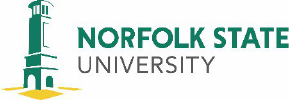
BOV POLICY # 35 (2019) INTELLECTUAL PROPERTY POLICY
Page 7 of 15
11. Use of the University’s name in connection with the commercialization of Affiliates work
must be approved in advance by the University, through the Dean of the School of
Graduate Studies and Research.
Intellectual Property Committee:
The Intellectual Property Committee, in consultation with University Counsel is responsible for
making policy recommendations to the Provost for dealing with patents, copyrights, and related
mechanisms for the protection and/or exploitation of intellectual properties. The Dean for
Graduate Studies and Research shall serve as the non-voting Chairperson of the Committee. The
Committee shall be composed of five (5) members: (1) recommended by the Vice President for
Finance and Administration, (1) recommended by the Provost and Vice President for Academic
Affairs and (3) members recommended by the Faculty senate through an election process from the
general faculty. All terms are for three (3) years and members may be reappointed for a maximum
of one (1) extra term. In the event a member resigns from the committee or is unable to serve, that
member will be replaced (per the description above). The new member will be appointed to
complete the current term.
IP Committee Administrative Responsibilities:
The responsibility for the administration of the NSU Intellectual Property Policy is assigned to the
Dean of Graduate Studies and Research. The Intellectual Property Committee shall perform the
following duties:
• To develop standards and procedures appropriate for the implementation of this policy to
the Provost and Vice President of Academic Affairs;
• To promulgate invention and creative work Disclosure Documents that are subject to
change from time to time;
• To hear and make recommendations to the Provost and Vice President of Academic
Affairs on disputed ownership of discoveries, inventions, and copyrightable materials;
• To determine, whether the University has an interest in such property;
• Advise the responsible Originator whether Intellectual Property is patentable or
copyrightable;
• To hear and make recommendations to the Provost and Vice President of Academic
Affairs on disputed equities of the University and the Originator of the Intellectual
Property in which the University has a proprietary interest;
• To make recommendations to the Provost and Vice President of Academic Affairs for the
sharing of royalties between the University and the Originator of the Intellectual Property
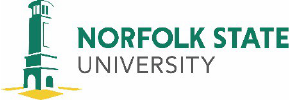
BOV POLICY # 35 (2019) INTELLECTUAL PROPERTY POLICY
Page 8 of 15
in which the University has a proprietary interest when in conflict with the established
distribution;
• To promulgate such guidelines and procedures as may be necessary for the
implementation of the Intellectual Property Policy, subject to review and approval of the
Provost and Vice President of Academic Affairs. Obtain, maintain, approve, and ensure
compliance with all signed agreements between the University and each Originator,
between the University and a sponsoring agency, and between the Originator and the
sponsoring agency;
• Take appropriate steps on behalf of the University for securing patent rights and
copyrights in Intellectual Property in which the University has an ownership interest;
• To oversee the Administration of the royalties accruing to the University as a result of the
implementation of this policy;
• Establish guidelines for use of royalties accruing to the University as a result of the
implementations of this policy;
• Inform the Originator of all requirements regarding patents in any grant, contract
agreement, or other funding source accepted by the University;
• With the aid of the Originator, provide all invention reports and other pertinent
information regarding patents required by the terms of a grant, contract, agreement, or
other funding source to which the University is a party;
• The IP Committee will render the recommendations to the Provost and VPAA within 90
working days.
Disclosure of Intellectual Property by Originators
Originators of any Intellectual Property, whether or not protectable by patent, copyright, or other
mechanism, will timely complete an invention or creative work Disclosure Document either prior
to public disclosure (abstract, poster session, publication, meeting presentation, etc.) or within
thirty (30) days of origination of an Invention, completion of copyrightable subject matter in which
NSU has an ownership interest as set forth in point 7 of the “Ownership” section of this policy
(e.g. work created pursuant to an Assigned Duty, work created with a Significant Use of University
Resources, etc.), or creation of the Intellectual Property, whichever is earlier, and provide it to the
Dean of Graduate Studies of Research. Failure to provide the Disclosure Document or to timely
provide the Disclosure Document may jeopardize the rights of the University, and will result in
administrative actions up to and including forfeiture of any distributions that may be due the
Originators. The Disclosure Document will be utilized by the IP Committee to make decisions on
whether to commercialize the Intellectual Property. For more details on procedures, refer to the
IP Procedures and Timeline Document.

BOV POLICY # 35 (2019) INTELLECTUAL PROPERTY POLICY
Page 9 of 15
Distribution
The University may seek to secure and commercially exploit Intellectual Property by whatever
manner it deems to be within the best interest of the school, and within the sole discretion of the
University. If the University successfully licenses third parties to commercialize any Intellectual
Property, the University, after it recovers its overhead costs and other expenses for securing
Patents, Copyrights, Trademarks or other forms of protection on the Intellectual Property, will
share whatever revenues or other things of value it obtains for the license including all up-front
payments, milestone payments, option payments, royalties on sales or use of licensed products or
processes, stock, warrants, or other financial instruments according to the following schedule:
% Distribution of net revenue
Originator(s)
50
SGSR (IP Pool)
10
University IDC
10
Originator’s School
10
Originator’s Department
20
Any research contracts, grants, consulting agreements and other funding vehicles from or with the
United States Government or other funding entities must be honored. Such documents that are at
variance with this policy may be referred to the Intellectual Property Committee for
recommendations prior to approval. The University President reserves the right to reallocate the
University’s 50% distributions as identified above.
Right to Appeal
The Originator covered by this policy shall have the right to appeal application of the policy
regarding ownership of a patent or copyright, or any procedure relating thereto, to the Provost and
Vice President of Academic Affairs (PVPAA). A written request for appeal must be made to the
PVPAA and a copy of the appeal forwarded to the Intellectual Property Committee Chair. The
request must contain a statement of the specific nature of the appeal, the grounds upon which the
appeal is based, and a summary of the facts supporting the applicant’s position, and any material
the applicant believes is relevant. If, in the judgment of the PVPAA, the resolution of the appeal
requires technical expertise, the PVPAA shall appoint a Committee of five (5) faculty members
and administrators to make a recommendation regarding the resolution of the appeal. The PVPAA
has discretion to accept or reject the Committee’s recommendation and make a recommendation
to the President. The researcher has the right to appeal the decision of the PVPAA to the President.
The President is the last level of appeal and all decisions are final.
Transfer of Intellectual Property
Except when the governor’s prior written approval is required, the University’s governing board
may transfer ownership of any Intellectual Property in which it claims an interest.
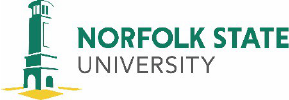
BOV POLICY # 35 (2019) INTELLECTUAL PROPERTY POLICY
Page 10 of 15
If NSU commences commercialization of Intellectual Property, e.g. by filing a provisional
application, but later, within its sole discretion, does not want to proceed further with
commercialization efforts, NSU may license the asset to the Originator/Originating group under
reasonable terms.
If no laws prevent NSU from returning ownership to the Originators (e.g. rules pertaining to federal
and state funding, etc.) and if NSU has not created an intangible asset in the form of a Patent or
Copyright registration, and further if, NSU has filed a provisional application but the Originating
group will not be claiming priority to the filing, and if NSU chooses not to commercialize the
technology, NSU may permit the Originators to pursue commercial exploitation of the technology
in their own private capacity subject only to the right of NSU to retain a fully paid-up, non-
revocable, non-exclusive license to make and use the Intellectual Property for non-commercial,
research, instructional, and educational purposes, and will provide the Originators with written
notice of the same.
The governor’s prior written approval is required for transfers of title to patents and copyrights
that were:
A. developed wholly or predominantly through the use of state general funds, by an employee
of the University acting within the scope of his or her assigned duties;
or
B. developed wholly or predominantly through the use of state general funds, and are to be
transferred to an entity other than the following:
• an entity whose purpose is to manage intellectual properties on behalf of nonprofit
institutions;
• an entity whose purpose is to benefit the transferring institution; or
• the Innovation and Entrepreneurship Investment Authority.
When prior written approval is required, the University should send a description of the Intellectual
Property and the proposed transaction to the State Council of Higher Education for Virginia.
Within thirty (30) days, the Council will recommend action to the governor, including any
conditions the Council thinks should be attached to the proposed transfer. The governor also may
attach conditions to the transfer.
It should be noted that the governor’s approval is not required for the granting of a license to use
Intellectual Property, but only when the actual title is to be transferred.
Conflict with Statutes or Regulations
Nothing in this policy shall be interpreted in a manner that conflicts with any applicable Federal
or state law, any applicable implementing regulations, or State Council on Higher Education for

BOV POLICY # 35 (2019) INTELLECTUAL PROPERTY POLICY
Page 11 of 15
Virginia Guidelines. To the extent that there is a clear conflict, the applicable law, regulations, or
guidelines control the outcome.
EDUCATION AND COMPLIANCE
Faculty and staff will be required to take a mandatory Awareity’s MOAT review of this policy.
Upon reading this policy, each faculty/staff member will be required to sign an Acknowledgement
Form. Both documents are contained within Norfolk State University MOAT Vault. To reinforce
understanding of this policy, the policy will be shared with new faculty/staff during orientation.
Tracking will be utilized to ensure compliance with completing the Acknowledgement Form in
MOAT.
Failure to comply with this requirement will be reported to the employee’s supervisor. Additionally,
failure to comply with this requirement will result in OIT revoking access to NSU's email, electronic
doors, networks, and student systems. The reinstatement process requires a reinstatement form to
be completed and signed by a supervisor and could take several days for the process to be completed.
PUBLICATION
This policy will be widely published and distributed to the University community. To ensure
timely publication and distribution thereof, the Provost will make every effort to:
• Communicate the policy in writing, electronic or otherwise, to the University community
within 14 days of approval;
• Submit the policy for inclusion in the Online Policy Library within 14 days of approval;
and
• Educate and train all stakeholders and appropriate audiences on the policy’s content as
necessary. Failure to meet publication requirements does not invalidate this policy
REVIEW SCHEDULE
• Next Scheduled Review: March 2024
• Approval by, date: Board of Visitors, March 19, 2021
• Revision History: May 3, 2019; December 11, 2020
• Supersedes: University Intellectual Property Policy, dated May 15, 1999

BOV POLICY # 35 (2019) INTELLECTUAL PROPERTY POLICY
Page 12 of 15
RELATED DOCUMENTS
Special Reviews:
https://www.nsu.edu/Academics/Faculty-and-Academic-Divisions/Schools-and-
Colleges/School-of-Graduate-Studies-and-Research/Sponsored-Programs/Pre-Award-
Policies-and-Procedures
Intellectual Property Disclosure Notification
Virginia State and Local Government Conflict of Interests Act, Code of Virginia §2.2-3100,
et seq.
Virginia Public Procurement Act, Code of Virginia § 2.2-4300
FORMS
Mutual Non-Disclosure Agreement
NSU Invention Disclosure Document: (Form needs to be uploaded to Sponsored Programs)

BOV POLICY # 35 (2019) INTELLECTUAL PROPERTY POLICY
Page 13 of 15
Intellectual Property & Technology Transfer Regulations (Source: ACUA.org)
Statute
Regulation
Summary
Reporting Requirement
American
Jobs
Creation Act
of 2004
26 U.S.C. §
170
•
For contributions of patents and
certain other intellectual property
made to a 501(c)(3) after June 3,
2004 the taxpayer's initial
contribution deduction is limited
to the lesser of the donor's basis
in the contributed property or the
fair market value of the property.
The institution is
expected to file Form
8899 (Notice of Income
from Donated
Intellectual Property) by
the last day of the first
full month following
the close of the
institution's taxable
year to which the net
income from the
contribution is properly
allocable.
Bayh-Dole
Act of 1980
35 U.S.C. §§
200-212
37 C.F.R. §
40148 C.F.R.
§
927
48 C.F.R. §
952
48 C.F.R. §
970
•
Establishes a uniform policy for
the disposition and licensing of
rights to patentable inventions
discovered in the course of
federally-funded research.
The University has
several reporting
requirements regarding
federally funded
inventions.
Cooperative
Research and
Technology
Enhancement
Act
(CREATE
Act)
Public Law
No. 108-453
37 C.F.R. §
401
•
Amends the Patent Act to
provide that sharing of
confidential information under a
joint research agreement that was
in effect on or before the date the
claimed invention was made will
not be the basis of an
obviousness determination under
patent law.
•
Promotes patentability of
inventions created between
universities and the private
sector by treating inventions as
having a sole owner.
Not Applicable
Trademark
Revision Act
•
Subject to the principles of
equity, the owner of a famous
mark that is distinctive,
Not Applicable
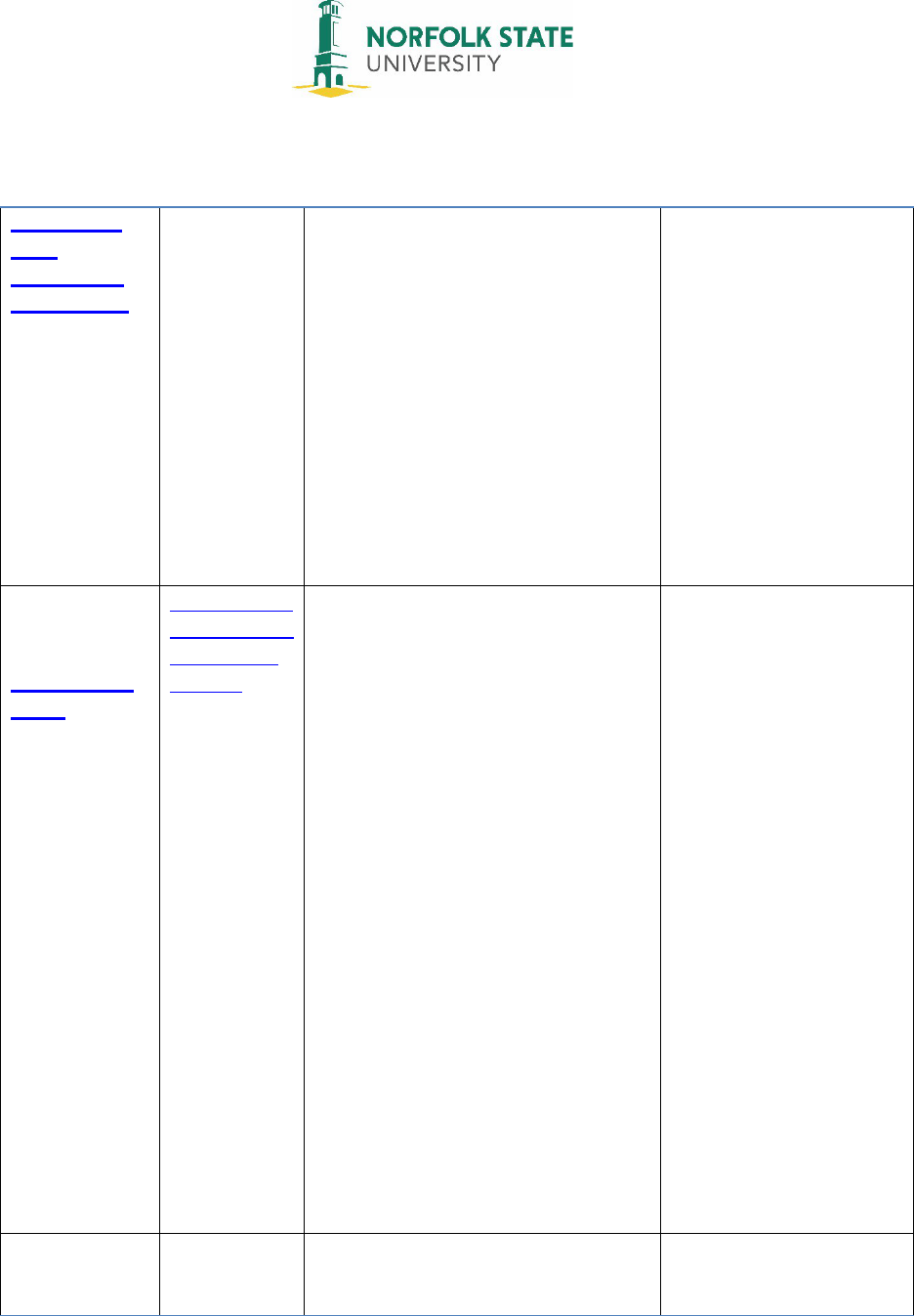
BOV POLICY # 35 (2019) INTELLECTUAL PROPERTY POLICY
Page 14 of 15
15 U.S.C. §
1051
Public Law
No. 109-312
inherently or through acquired
distinctiveness, shall be entitled
to an injunction against another
person who, at any time after the
owner's mark has become
famous, commences use of a
mark or trade name in commerce
that is likely to cause dilution by
blurring or dilution by
tarnishment of the famous mark,
regardless of the presence or
absence of actual or likely
confusion, of competition, or of
actual economic injury.
U.S. Patent
Act
35 U.S.C. §§
1-390
Consolidated
Patent Rules,
37 C.F.R. §
§ 1-150
•
The consolidated patent laws
specify the subject matter for
which a patent may be obtained
and the conditions for
patentability. They also include
requirements related to
representation before the U.S.
Patent and Trademark Office,
applications for registration,
examination procedures,
amendment of applications,
publication and post publication
procedures, appeals, petitions,
post registration practice,
correspondence in trademark
cases, classification of goods and
services, and procedures under
the Madrid Protocol.
•
The laws establish the Office to
administer the law relating to the
granting of patents and contain
various other provisions relating
to patents.
Not Applicable
Visual Artists
Rights Act
•
Protects moral rights for fine art
works, but does not protect
audiovisual works and probably
Not Applicable

BOV POLICY # 35 (2019) INTELLECTUAL PROPERTY POLICY
Page 15 of 15
17 U.S.C. §
106A
does not apply to most
multimedia creations.
U.S.
Copyright
Act
17 U.S.C. §
107
•
Limitations on exclusive rights:
Fair use
Notwithstanding the provisions
of sections 106 and 106 A, the
fair use of a copyrighted work,
including such use by
reproduction in copies or phono
records or by any other means
specified by that section, for
purposes such as criticism,
comment, news reporting,
teaching (including multiple
copies for classroom use),
scholarship, or research, is not an
infringement of copyright. In
determining whether the use
made of a work in any particular
case is a fair use the factors to be
considered shall include—
(1) the purpose and character of
the use, including whether such
use is of a commercial nature or
is for nonprofit educational
purposes;
(2) the nature of the copyrighted
work;
(3) the amount and substantiality
of the portion used in relation to
the copyrighted work as a whole;
and
(4) the effect of the use upon the
potential market for or value of
the copyrighted work.
The fact that a work is
unpublished shall not itself bar a
finding of fair use if such finding
is made upon consideration of all
the above factors.
Not Applicable
